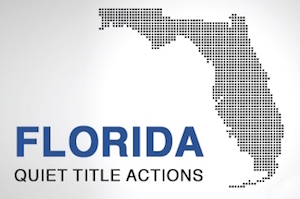Do you know what it means to rehabilitate federal student loans and why it is necessary? First, once a federal student loan goes into default, several consequences can occur including:
- Administrative wage garnishment;
- Income tax refund intercepts;
Do you know what it means to rehabilitate federal student loans and why it is necessary? First, once a federal student loan goes into default, several consequences can occur including:
 On August 26, 2016, the U.S. Department of Education banned ITT Technical Institute from enrolling new students who use federal financial aid. This is the result of several investigations into their recruiting, marketing and job placement practices. The loss of these funds may ultimately be the demise of ITT likely in a matter of weeks. The Chicago Tribune did a story here with more details.
On August 26, 2016, the U.S. Department of Education banned ITT Technical Institute from enrolling new students who use federal financial aid. This is the result of several investigations into their recruiting, marketing and job placement practices. The loss of these funds may ultimately be the demise of ITT likely in a matter of weeks. The Chicago Tribune did a story here with more details.
9/19/16 Update: Since ITT’s closure on September 7, 2016, we are now taking clients for representation to seek a discharge of their federal student loans (including Parent Plus federal loans taken by a parent for a student). New federal guidelines created following the closure of Corinthian go into effect on November 1, 2016 to allow for former students to potentially discharge debt due to fraudulent representations by the school in violation of state law.
It is too early to say whether former students of ITT will be able to assert a defense to repayment of their federal student loans. It’s possible because there are several open investigations into various ITT campuses and if they find evidence of fraud or illegal behavior, you may be eligible for relief. The DOE is expected to wrap up its final regulations regarding borrower defenses to repayment of federal student loans by the end of this year. We believe that the new regulations will expand the current environment which mostly only permit an administrative discharge when a school is closed within 120 days of your attendance and your credits are non-transferable.
 I just watched yet another attorney’s video from 2013 about how student loans are hardly ever discharged in a bankruptcy unless you are extremely ill. The ending quote about student loans was “you’re stuck with them”.
I just watched yet another attorney’s video from 2013 about how student loans are hardly ever discharged in a bankruptcy unless you are extremely ill. The ending quote about student loans was “you’re stuck with them”.
And that was it. No discussion about options, possible outcomes, etc. Just you’re stuck with them. Unfortunately that is still the outlook of most attorneys. I guess that’s good news for my student loan practice, but we can only serve so many clients. What about all the ones we don’t reach?
We don’t accept that. At our law firm we are finding solutions. This week one of our private student loan clients accepted a settlement that was only 8% of his nearly 100k balance. 8 percent. Really. And he’s young, perfectly healthy, with no disability. He is borrowing $8,000 from his father to pay off in full this ridiculously huge student loan that he could never make a dent in otherwise. Then we are putting him into an income driven plan with debt forgiveness for his much smaller federal loans. I think his payment will be around $250. He came to me with $140,000 in debt with an income of less than $35,000. His student loan statement from Navient showed he was $69k past due. Most attorneys including the one from the video I watched today would say tough luck, you’re stuck with them. Needless to say it was quite depressing watching this video. I’m glad this client didn’t see that video, he probably would never have picked up the phone to call me. Instead he now owes around 40k instead of $140k and he has a reasonable payment of $250 with debt forgiveness for anything not paid after 25 years. And he feels good about himself and where his life is headed now.

Useful information can be obtained from the Consent Orders relating to improper debt collection activities obtained by the Consumer Financial Protection Bureau. Recent orders applicable to Fred Hanna, Encore Capital Group, Inc., Midland Funding, LLC, Midland Credit Management, Inc., Asset Acceptance Capital Corp., PRA, LLC, Porfolio Recovery Associates, Chase Bankcard Services, Santander Bank, N.A., Solomon & Solomon P.C., Westlake and Wilshire etc. can be found here on the CFPB site. (searchable filters).
Debt collectors are not permitted to provide false or deceptive information to you in their attempts to collect a debt. This may include the things they can do to you if you do not pay (such as take your home, sue you etc.). This may include who they are affiliated with. We are evaluating a case right now where the debt collector is private company. But they’ve told my client that they are the Department of Education. This is contrary to their website which we noted states no affiliation with the DOE. Basically, our marching orders are if what they say is not the whole truth and nothing but the truth, they run the risk of violating the law. This means if they try to explain your options, but leave perhaps the best one out – this would be a violation of the FDCPA, FCCPA and perhaps even unlicensed practice of law. All these consumer law violations give us excellent leverage to negotiate lower balances, better payment plans and sometimes even a write off of the entire debt.
This applies to all consumer debt. Auto finance, second mortgages, credit cards, signature loans and best of all student loan debt. When we are hired to settle any kind of debt we first take the time to educate our client on their consumer rights, what kinds of behavior can lead to violations and we have them document any phone calls they are receiving. Then we use all this to settle the debt.
 If a creditor waits too long to sue, the creditor can be barred from ever bringing suit. The purpose of having a statute of limitations is so that lawsuits are brought when the matter is still fresh: before documents are destroyed and memories fade. If they can no longer bring a lawsuit, then there is no way to legally enforce the debt. Each state has their own laws as to how long the statute of limitations is and it varies tremendously by state and also by the type of action. In Florida, the statute lasts five years for a written contract and four years for a credit card account. While this seems simple, it is often amazingly difficult for a lay person to analyze because a contract may provide that a different state law applies, even a state that neither party has anything to do with. The answer may also vary depending upon whether it is a procedural or substantive question of law or how complete the writing was. The Florida Statute of Limitations on this is contained in Section 95.11:
If a creditor waits too long to sue, the creditor can be barred from ever bringing suit. The purpose of having a statute of limitations is so that lawsuits are brought when the matter is still fresh: before documents are destroyed and memories fade. If they can no longer bring a lawsuit, then there is no way to legally enforce the debt. Each state has their own laws as to how long the statute of limitations is and it varies tremendously by state and also by the type of action. In Florida, the statute lasts five years for a written contract and four years for a credit card account. While this seems simple, it is often amazingly difficult for a lay person to analyze because a contract may provide that a different state law applies, even a state that neither party has anything to do with. The answer may also vary depending upon whether it is a procedural or substantive question of law or how complete the writing was. The Florida Statute of Limitations on this is contained in Section 95.11:
Actions other than for recovery of real property shall be commenced as follows:
(2) Within five years.–

Many of our recent bankruptcy clients report large amounts of business debt. This may be small business loans, credit cards run up to support a small business, or personal guarantees. Often the business is gone at this point and we are looking to file an individual bankruptcy. Filing a bankruptcy for a dissolved business is often an unnecessary and risky expense.
Sometimes our debtor client is married, and their spouse remains unaffected by the bankruptcy. Their marriage alone often provides the basis to protect their personal or real property by using a special exemption called Tenancy by the Entireties. In Florida, our homestead laws are quite broad and serve to protect the home. Most IRAs, SEP IRAs, 401ks and other retirement assets are fully protected as well. If the amount of business debt exceeds the consumer household related debt, our clients do not even have to comply with the rather stringent Means Test imposed by Congress in the bankruptcy reform act passed a few years back.
Business creditors are also often some of the most aggressive. They figure if you once made money, you will again one day. So they sue and obtain a judgment. But if you file bankruptcy at a low point in your life, you truly can start over. You can file bankruptcy whether or not the creditor has already obtained a judgment. It’s discharged all the same.
One common myth is that the prior property owner will receive the surplus of any bid over the unpaid taxes. It’s possible, but not that likely. The order of priorities for any surplus is:
 Do I need to have possession to quiet title to property?
Do I need to have possession to quiet title to property?
No, in fact there is a process whereby we can file a Complaint for Unlawful Detainer along with the Quiet Title Action following a foreclosure sale or tax deed sale for instance. You do not need a separate eviction and you do not have to wait for the person to be out before you file to quiet title.
How long following a judgment against a mortgage company must I wait to quiet title?
Do you realize that if you are constantly robbing Peter to pay Paul and cannot ever get ahead, you could be debt free by the holidays if you qualify for a Chapter 7. Many clients who come to see us have been struggling with debt for a long long time. No one rushes to file bankruptcy. Most everyone tries to pay their bills until they finally can’t.
But a Chapter 7 case takes less time start to finish than traffic court in many cases. Of course there are exceptions. But ordinarily a Chapter 7 discharge takes approximately 90 days.
There are some instances where it could take longer: the bankruptcy trustee needs more information, you’ve delayed the personal financial management course, you are trying to discharge student loans, a creditor or the trustee objects or disagrees with your exemptions. Hiring competent bankruptcy counsel will make everything go much smoother.